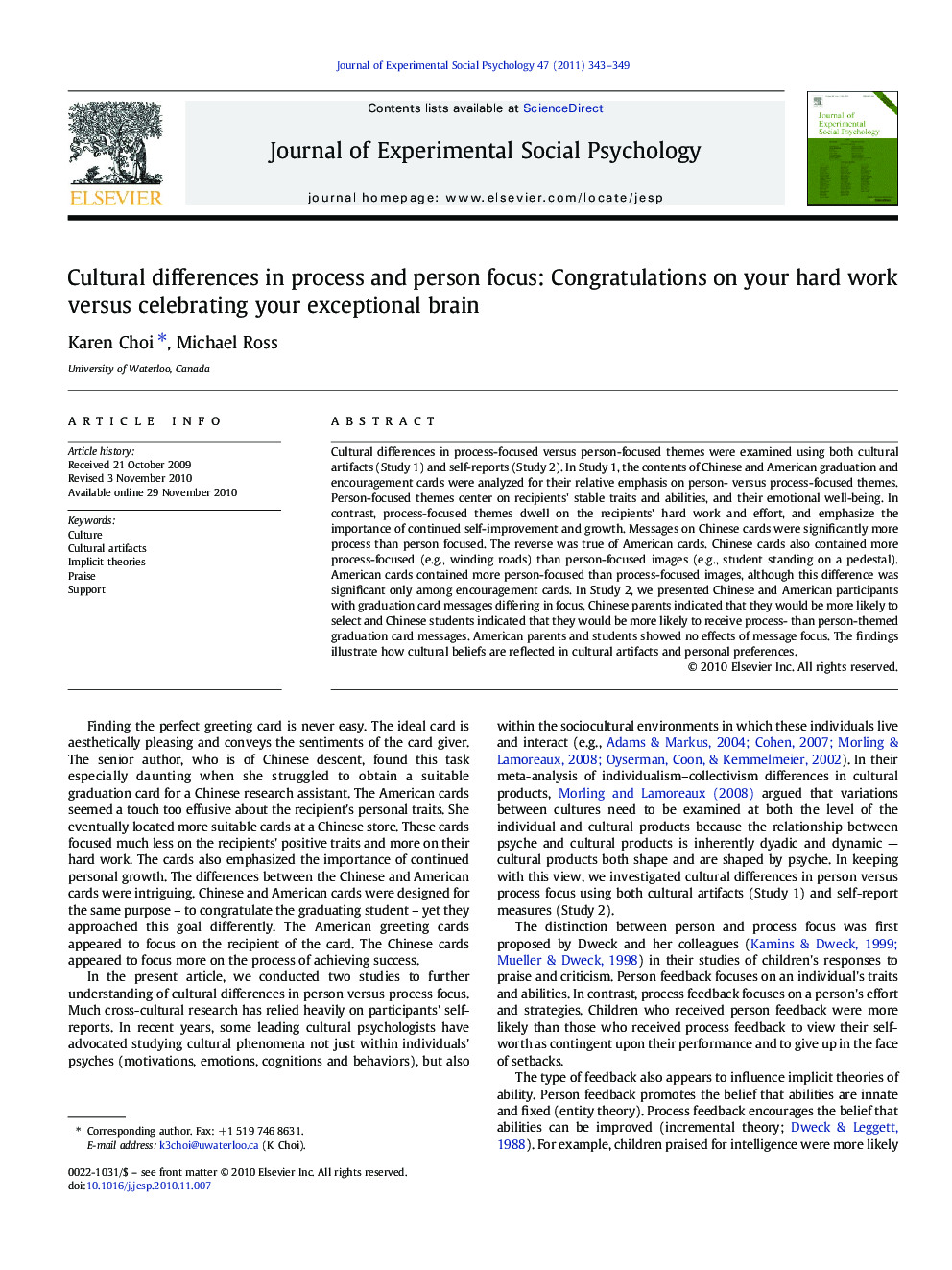| Article ID | Journal | Published Year | Pages | File Type |
|---|---|---|---|---|
| 10468650 | Journal of Experimental Social Psychology | 2011 | 7 Pages |
Abstract
Cultural differences in process-focused versus person-focused themes were examined using both cultural artifacts (Study 1) and self-reports (Study 2). In Study 1, the contents of Chinese and American graduation and encouragement cards were analyzed for their relative emphasis on person- versus process-focused themes. Person-focused themes center on recipients' stable traits and abilities, and their emotional well-being. In contrast, process-focused themes dwell on the recipients' hard work and effort, and emphasize the importance of continued self-improvement and growth. Messages on Chinese cards were significantly more process than person focused. The reverse was true of American cards. Chinese cards also contained more process-focused (e.g., winding roads) than person-focused images (e.g., student standing on a pedestal). American cards contained more person-focused than process-focused images, although this difference was significant only among encouragement cards. In Study 2, we presented Chinese and American participants with graduation card messages differing in focus. Chinese parents indicated that they would be more likely to select and Chinese students indicated that they would be more likely to receive process- than person-themed graduation card messages. American parents and students showed no effects of message focus. The findings illustrate how cultural beliefs are reflected in cultural artifacts and personal preferences.
Related Topics
Life Sciences
Neuroscience
Behavioral Neuroscience
Authors
Karen Choi, Michael Ross,
